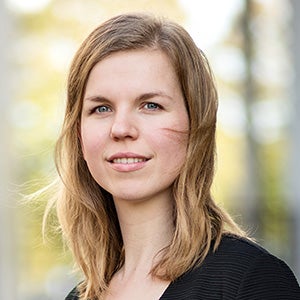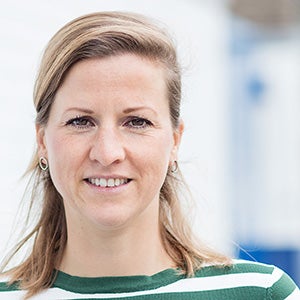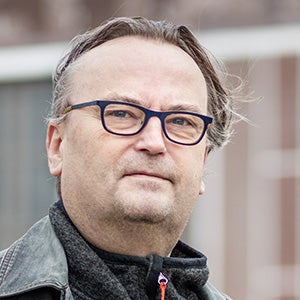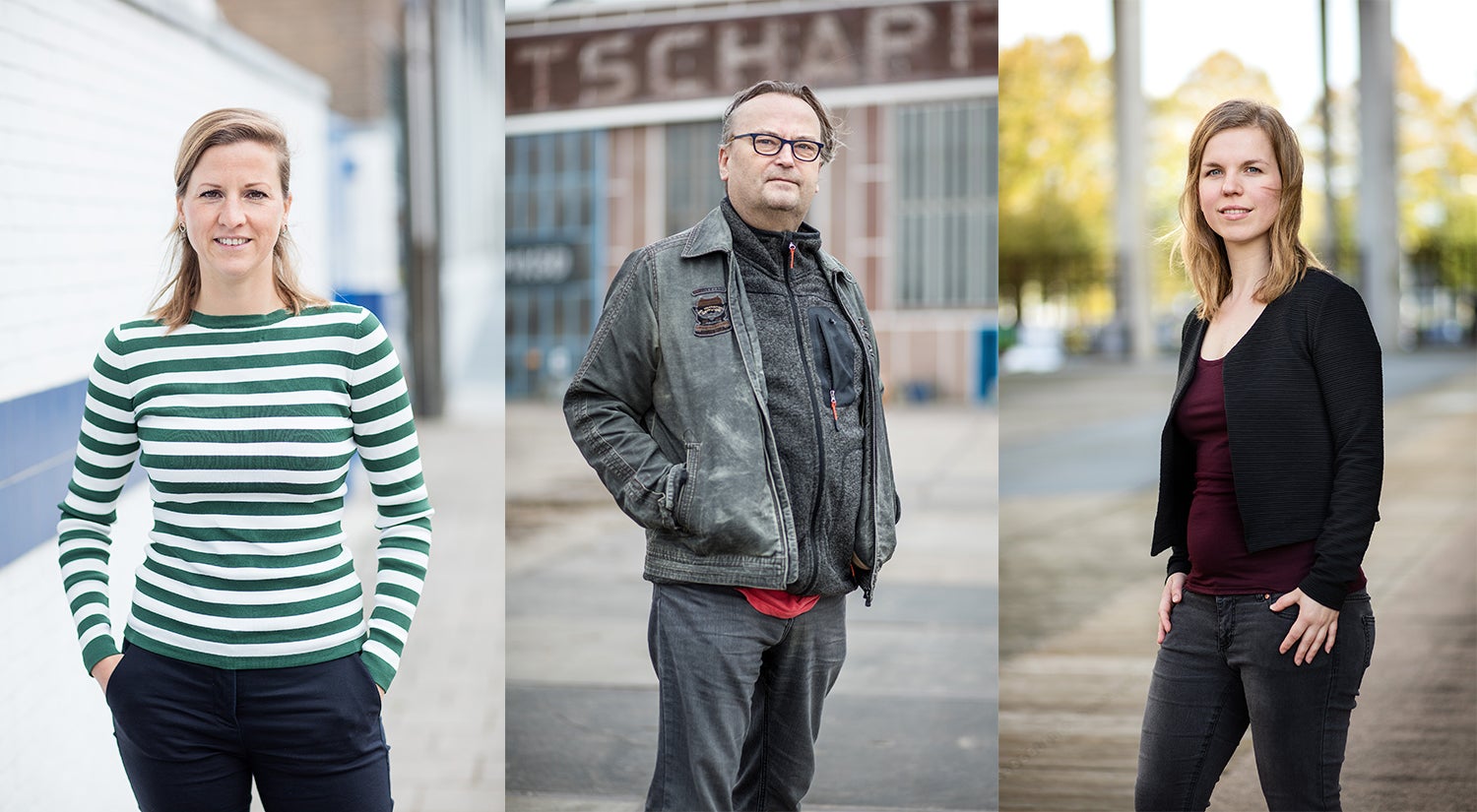The VU now has more than 100,000 alumni. Where did they end up after their studies? In this section, we feature three alumni from the same degree programme. This time: sociology alumni.
‘I haven’t stopped working with refugees and residence permit holders since’

You’re a civic integration coordinator. What does that entail? ‘I work for the Academy for Civic Education, a school that helps prepare residence permit holders for the civic integration exam and state exam. As a coordinator, I’m the point of contact for teachers, the municipality and the Dutch Council for Refugees with regard to all matters related to the school and the course participants. I also run two of my own groups, where I act as a personal mentor to the course participants. I teach them about Dutch society and the labour market every week.
How did you end up here? ‘I have always found it interesting to see what happens when different cultures meet. That’s why I started volunteering at a school for refugee children when I was studying for my Bachelor’s degree. I liked it: teaching those children how to speak Dutch and playing games with them was a lot of fun. The children loved it too. I haven’t stopped working with refugees and residence permit holders since.’
Have your studies come in handy in your current job? ‘Definitely. My Master’s degree had a strong focus on social participation. We learned how social processes work and how society is structured. I can now share that knowledge with the people participating in my course. My degree also taught me how to activate course participants. One of the people in my group had been a camera man in his home country. I knew of an organisation who had a job for him, but he just wouldn’t go to meet them. For him, and for many other residence permit holders, it is hard to imagine what to expect when you first set foot in a new organisation, so I suggested that I’d go with him for the first meeting. That turned out really well: he was given the job and he now handles all contact with the organisation himself.’
‘For me, there is a clear link between yoga and HR’

What is your job? ‘I started a new job five months ago, as an HR professional at Royal HaskoningDHV, an engineering company. They developed a new strategy aimed at an innovative, more digital approach to work. I’m there to guide the employees through this transition.’
You’re also a yoga teacher – a different thing altogether. ‘For me, there is a clear link with my work. Yoga revolves around awareness of body and mind. As an HR professional, I always try to find out what energises people, which also involves awareness. Yoga also helps me to take some time to reflect on what I’m doing and why. If your calendar is as full as mine is, that’s hardly a luxury. I’ve now temporarily stopped teaching, because I’ve just started a new job. I do spend half an hour on my yoga mat at home before I start my day.’
What did you think of the sociology programme? ‘It took some getting used to at first: I’d come from a University of Applied Sciences and this was the first time in my life that I was really pushed to work hard. I didn’t pass a single course in my first semester. Fortunately, the people around me encouraged me to keep going. Later on, it all ‘clicked’ and everything because a lot easier.’
Do you have fond memories of any of the professors? ‘Katinka Bijlsma, who taught Trust and performance. We weren’t a great match: I thought she was strong on theory, but very critical at the same time. The funny thing is that I find myself thinking of her quite regularly, because her course crops up frequently in my job.
‘It took a sabbatical for me to remember why I had chosen sociology’

What was your student life like? ‘I didn’t spend a lot of time studying and could often be found in the cinema and the pub. It was the 70s: we felt like real revolutionaries who would make the world a better place. We’d take to the streets to protest something almost every week. I remember when I made huge papier-mâché lookalikes of Hans Wiegel and Dries van Agt, which we took to the Magere Brug in Amsterdam and threw into the water.’
Are you still in touch with people from back then? ‘I’ve been back in touch with seven fellow students for about a year now. The group dynamics are still the same; people don’t really change that much, after all. We do the same things we used to, such as going to the pub together. We don’t take to the streets to protest anymore, though!’
Now you’re fighting for innovative education. What does that entail? ‘I believe that today’s school system is overly focused on grades and performance, rather than on the students themselves. My job involves helping children who are under the school-leaving age, but who don’t fit into the regular education system, for one reason or another. I link them with ‘buddies’, who find appropriate teachers for them.’
How did you end up in this job? ‘I graduated in the middle of a crisis. At the same time, there was a huge shortage of IT professionals, which is why the government and a consortium of IT companies joined forces to organise the PION reskilling project. Along with thousands of other academics, I was retrained to be a programmer. I spent twenty years working in that sector, after which I’d had more than enough of office life. It took a sabbatical for me to remember why I’d chosen to study sociology back in the day: I wanted to put more emphasis on personal growth and creativity. That’s when I knew that this was the job for me.’






